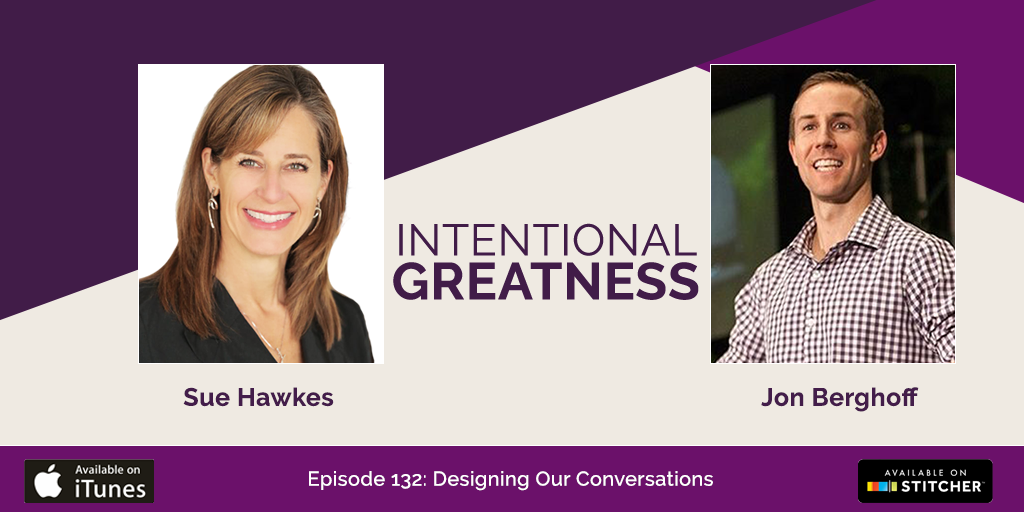Episode 132:
In this episode of the Intentional Greatness® podcast, we are joined for the fourth time by Jon Berghoff. Jon is the founder of the XCHANGE Approach, where he helps facilitate meaningful dialogue and change at an accelerated pace. During their conversation, Jon and Sue discuss their takeaways from the WPO Conference and how to design and facilitate conversations that can work well in any group setting. He also shares an alternative method to traditional problem-solving techniques.
What you’ll learn about in this episode:
- Why do most leaders struggle to slow down instead of taking action
- How to design conversations to be a resource
- Why we should pause when making important decisions
- How being more productive causes us to stop relationship building
- An alternative to traditional problem-solving approaches
- How to craft quality questions and facilitate conversations in any setting
- Questions can we ask during moments of creative tension
Resources:
- Website: https://xchangeapproach.com/
- LinkedIn: https://www.linkedin.com/in/jonberghoff
- https://www.linkedin.com/company/xchange-approach
- Facebook: https://www.facebook.com/XChangeGuide/
Conversations that Work
In this episode of the Intentional Greatness® podcast, we are joined for the fourth time by Jon Berghoff. Jon is the founder of the XCHANGE Approach, where he helps facilitate meaningful dialogue and change at an accelerated pace. During their conversation, Jon and Sue discuss their takeaways from the WPO Conference and how to design and facilitate conversations that can work well in any group setting. He also shares an alternative method to traditional problem-solving techniques.
Productivity Drawbacks
During this era of time, while we continue to have the majority of our meetings online, many feel that we have the opportunity to be more productive. We are putting such a large emphasis on how productive we can be that we are losing sight of the consequence of that productivity. Jon shares that when we get hyper-productive, the consequence is we shut off the part of our brain that does all the important relationship building.
Benefits of Curiosity
It is common to share your thoughts and ideas, and when they are not well-received or liked we tend to take it personally, as though the person does not like us. Jon explains how during these instances of creative tension we can work through the moment by becoming curious. He explains that studies show high-performing teams that can navigate change well depending on how curious they are.
Download Your FREE Chapter of Chasing perfection
Get the first chapter of Sue’s book, Chasing Perfection: Shatter The Illusion along with the companion toolkit, the Maximizing Success Journal!
Categories: Uncategorized


